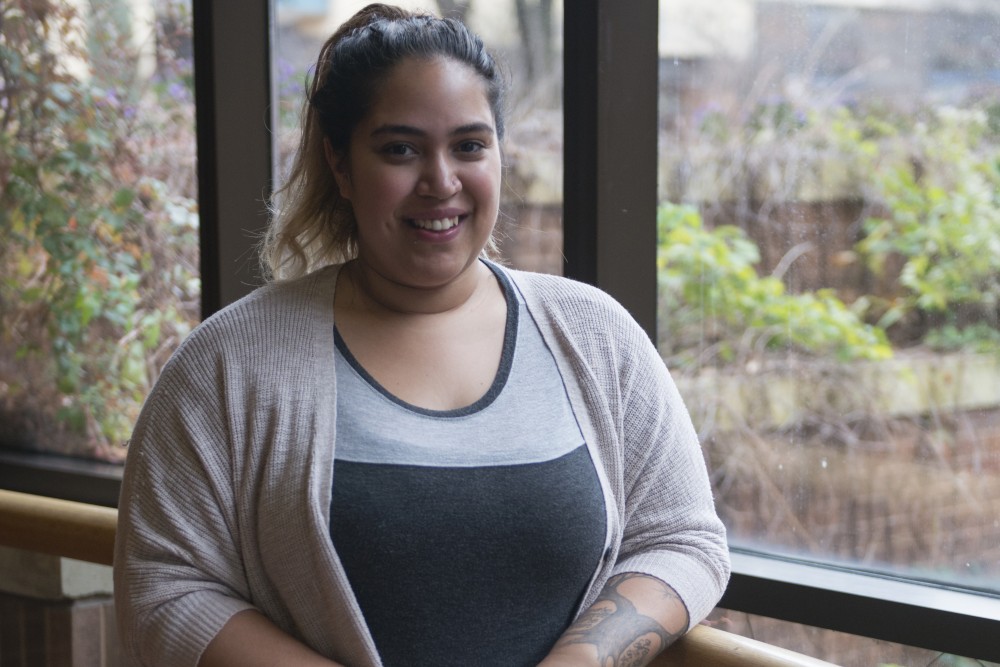Ileana Mejia heard about historically low voter turnout in local elections and wanted to do something — even though she no longer lives in the Twin Cities.
Mejia, the vice president of public relations for the Humphrey Students of Color Association at the University of Minnesota, created a comprehensive election guide with the help of the Public Affairs Student Association. The guide, which includes links to each candidate’s campaign website and voting locations for students, was shared with Humphrey and Law school students last week.
Mejia said she was concerned about students being unaware of the upcoming elections.
PASA President and second-year Master of Public Policy student Emma Olson, who helped Mejia create the guide, said she sees it as a chance to include underrepresented students.
“We historically have not only seen young people not going out to ballots, but we also see a lot of low-income and low-wealth communities [and] people of color also have low turnout rates,” Olson said. “And that’s a huge issue that we aren’t really talking about.”
Second-year law student Dante Cade Harootunian said he already cast an early ballot for Raymond Dehn.
Though it’s hard to say how diversity plays a role in the election before the votes are counted, Harootunian said he thinks diversity and representation in elections are generally a good thing.
“People generally feel more represented when there’s someone like them,” he said.
In his home state of California, Harootunian said many majority-Hispanic cities had white mayors until a court ruling changed the electoral systems. “After that, turnout in election went much higher because people felt their votes actually made a difference.”
Second-year law student Josh Preston plans to vote for Raymond Dehn on Tuesday.
Preston, who grew up in a single-parent, low-income household, said his experiences led him to trust Dehn, who he said had a similar experience to his.
In the local elections, he said this is one of the most diverse elections Minneapolis and St. Paul have had.
“What we’re seeing right now in the mayoral race with the sheer diversity of candidates that we have is that in the age of Trump, everything has to be on the table,” Preston said.
Regardless of what the candidates preach about their policies, Preston said it will be up to them to hold true to their promises once elected.
“All of these DFL candidates have certainly said they stand with these communities, but I don’t think all of these candidates have been accepted by these communities,” he said.
Mejia said the upcoming election is important because the current political climate can leave many students confused and anxious.
“There’s a lot of things that I feel are very uncertain right now because of the political climate and so I feel like at a local level we can get things started,” she said.
Olson said the local elections give voters an opportunity to protect people within their communities by speaking up against candidates who won’t advocate for them.
Although Mejia isn’t eligible to vote in the Tuesday elections because she isn’t a Minneapolis or St. Paul resident, she said the issues the elections raise will directly affect students, citing examples like immigration, transgender issues, education and police reform.
“The little pin that I have in my car says Ray Dehn on it,” Mejia said. “If I was able to get a second-choice ranked vote, my little pin would probably say Nekima Levy-Pounds.”
Olson, a St. Paul resident, said she will vote for Melvin Carter on Tuesday.
“I think it’s really important that he is specifically a young, black man,” she said.
While bringing in candidates of color is crucial, Olson said it is much more effective and meaningful if their voices are appreciated and included in public policy.
“We’re the ones that will be hopefully going out there in the world and making a difference,” Mejia said. “So I just feel like… every student who is able to vote, should vote.”







